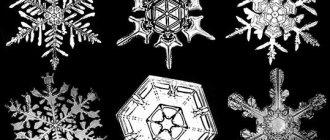Inspiration is a very pleasant feeling. This is when you feel an increased desire to do something. Most are excited about the prospects and moving forward. For some, various acquisitions, holidays, and events cause a particularly high mood. Encouragement is the last step before inspiration. There is little difference between them - inspiration has an even more vivid emotional state. First comes inspiration, and from it inspiration develops.
The meaning of the word inspiration
The state equating to a feeling of happiness is familiar to many. Inspiration is the simultaneous wakefulness of soul, mind and body. There are many formulations of the meaning of this word. Inspiration is the desire to do something with all your heart and soul. All interpretations of meanings are related to the emotional state of a person.
In Ozhegov’s dictionary, inspiration is an uplift of spirit, an incentive to action, to feat. The words spoken from heaven at the Transfiguration of Jesus were used to encourage Christians and strengthen their faith. In Efremova’s explanatory dictionary, inspiration (synonym) is passion, elation. Exactly - soulful! After all, the root of the word is derived from the word “soul”.
Inspiration
Inspiration as a personality quality is the ability to be in a state of intense passion for something for a long time, to experience a prolonged elation, to act at the limit of feelings.
Inspiration is a derivative of excited feelings and clearly manifested personality traits. When his “Baikonur” is self-esteem and the need to demonstrate positive personality traits, it is undoubtedly a virtue. When the cause of a person’s inspired state is inflamed hatred, burning anger, merciless revenge or black envy, inspiration turns into a convenient tool for the realization of evil.
You can cause the manifestation of this quality in many ways: personal example, inspired speech, new attractive ideas, promises of some benefits in the future, the desire to save or help a person, approval, reward, the benefits of change, a dangerous situation, a hopeless situation, or setting yourself what you want, your own, and not someone else's, goal. An inspired person is an inspired person, acting at the limit of his feelings and on the bright manifestation of his personality qualities. He does not fall into euphoria associated with emotional overload, is alien to exaltation or trance, he is simply in a state of elation for a long time and does not even allow thoughts of depression, despondency and despair.
Just as a husky brings maximum benefit to its owner in a harness, so inspiration is a synergistic effect from the “harness” of feelings and qualities, when one plus one can give a sum of seven, ten or fifteen. In battle, you can fight enthusiastically, relying on courage, fortitude, boldness, bravery and self-control, or you can flee inspiredly under the influence of your cowardice, alarmism, selfishness, timidity, sense of self-preservation, defeatism and self-doubt. Inspiration can be a derivative of faith, honor, a sense of patriotism and solidarity, a sense of comradeship and a moral sense of duty.
An inspired person has a second, third, and tenth wind; the reserve capabilities of his body cause consternation among doctors. “A riot of eyes and a flood of feelings,” combined with a person’s motivation and his demonstrated qualities, so overwhelm the body with adrenaline that no one is afraid of him and any task becomes possible. Once in 2006, in Quebec (province of Canada), Lydia Angiou had the opportunity to fight a huge polar bear when it approached the place where her son and other boys were playing hockey. She grabbed the bear and fought with it until help arrived. In this unequal fight, Lydia escaped with several wounds, while the animal itself was simply knocked out. However, the neighbor had to shoot him four times before the bear died. In 1982, in Georgia, Angela Cavallo managed to lift a Chevrolet Impala when it fell on her son Tony. The car fell off the jack and crushed Tony, who was repairing it. The mother lifted the car in a second and held it until the neighbors pulled out her son.
An example of inspired behavior is the documentary recording of the impressions of Hieromonk A. Kozhevnikov, who was on the heroically fought and lost cruiser “Rurik” during the famous battle near Tsushima during the Russian-Japanese War of 1904-1905. “I filled the pockets of my cassock with bandages and began walking along the upper and battery decks to make bandages. The sailors fought selflessly, and those who received wounds were eager to fight again. On the upper deck I saw a sailor with a leg that was barely supported by sinews. I wanted to bandage him, but he resisted: “Go further, father, there are many wounded there without me, but I will manage!” “With these words, he took out a sailor’s knife and cut off his leg. At that time, his act did not seem terrible to me, and I, almost not paying attention to him, moved on. Passing the same place again, I saw the same sailor: propping himself up with some kind of stick, he was pointing a cannon at the enemy. Having fired a shot at the enemy, he himself fell as if knocked down...”
V.S. Pikul in the novel “Cruiser” talks about the further course of the battle: “Death mutilated everyone, without distinguishing ranks and titles. People were torn into pieces, they were burned alive in the lower compartments, scalded with steam and boiling water, but the strength of spirit remained the same - victorious. Captain 1st Rank Nikolai Dmitrievich Dabich behaved bravely. Bunches of sharp fragments crashed under the “mushroom” of the conning tower, two fragments hit the commander - in the side and in the head. He was dragged down, barely alive... About twenty minutes later, the signalmen notice: “He’s running like he’s been whipped... You can’t see his nose!” Dabich, with his head wrapped in bandages, ran up to the bridge: “Well, thank God, I’m back in place... The explosion next to him killed five people a second time, and he was carried back to the cabin - dead... Not even half an hour had passed before - look!” Dabich crawls along the ladder to the bridge - on all fours, like a dog...” Dabich received seventeen wounds in this battle, but remained alive. He later gave an interview to reporters: “You can’t imagine how your nerves become dull during a fight. Nature itself seems to make sure that man endures all this. You look at the deck: arms, legs, skulls without eyes, without coverings are lying around, as if in an anatomical theater, and you pass by almost indifferently, because you are all burning with a single desire - victory!”
Inspiration arises either under the influence of internal impulses (spiritual feelings and personality traits), or external factors affecting the qualitative components of the personality: feelings and character traits. External circumstances (inspired speech, personal example of the commander) become a powerful motivation for showing inspiration. Not everyone is ready to act in a critical situation with positive inspiration, relying only on internal spiritual resources; many need external stimulating influence.
For a soldier, the main source of inspiration is the personal example of the commander. A.V. Suvorov was an unsurpassed master of inspiring soldiers. A.I. Krasnitsky writes: “It was near Golnau. The Russians attacked the enemy very quickly at first. However, the Prussians are a resilient people. They not only withstood the onslaught of the Russians and repulsed it, but even turned the Russian hussars and horse grenadiers into disorderly flight... The battle seemed lost when Suvorov appeared before the fleeing people. - Stop! Where are you going? - he shouted, - Don’t you see: I’m with you! The words are very simple. If someone else had said them, the soldiers would not have paid attention to them, but here Suvorov spoke! The fugitives stopped. - Stop! Be equal! All around to the left! March! - Alexander Vasilyevich commanded. And at his command, these people who had fled from the battlefield stood rooted to the spot, lined up as if in a parade, turned around and rushed like lions at the enemies... This attack was so unexpected that the Prussians mixed up and fled from the battlefield... Two battalions of Prussian infantry, foragers and the guns were the trophies of this victory...” “How Suvorov walked is clear from the fact that on just the fifth day he was already twelve miles from the hetman, having at that time completed a journey of more than two hundred miles... - Where is the hetman? - he asked the captured “tongues”. - In Stolovichi! - they all said. He wasn't interested in anything else. But his officers questioned the prisoners in detail about the number of the enemy. Suvorov, running through the ranks of his resting soldiers, shouted to them: “Miracle heroes!” Relax! Lie down where you are... In two hours there will be great joy, let's go beat Oginsky... He has ours in captivity. Let's stand up for our own! We will not give them to the enemy! We are Russians: God is with us! – Your Excellency, are you aware that the hetman has more than four thousand people and artillery... – That’s all? - Alexander Vasilyevich seems surprised. “I thought it was more, but here you won’t have to pay even five per brother... Listen, well done,” he addresses the soldiers, “just a heel, and we could handle ten each for a dear soul... One “hurray” is the enemy already half defeated, and then hit, stab, chop, don’t let him come to his senses! Drive - finish! Two will run away from the heel, three will perch. Stab one, shoot another, karachun the third with a bayonet, and if the fourth returns, use his butt. That's all: victory - glory! An electric spark runs through the ranks of soldiers. They forget that they only have one gun, but with this gun - they hear this clearly - they have four ways to fight the enemy, and as for the Russian "hurray", didn't they see how the enemies showed their rear as soon as hearing him..."
P.N. Krasnov in the book “The Soul of the Army. Essays on Military Psychology" vividly depicts how the commander's behavior evokes the inspiration of the soldiers: ""Skobelev, knowing his influence on the soldiers, looked at himself as the last reserve, which, when deployed, should decide the battle in our favor. On August 30, 1877, during the attack of the Plevna fortifications, the battalions moving from the 3rd ridge of the Green Mountains to the Turkish redoubts, despite the support of the Revel regiment, stopped 400-500 steps from the enemy. General Skobelev ordered the Libavsky regiment and the 11th and 12th rifle battalions, which were in his reserve, to support the attack. These five battalions pushed the battle line forward. But this movement, at first quite energetic and fast, then went “more and more slowly.” The success of the battle, General Kuropatkin writes about this moment, finally wavered. Then General Skobelev decided to throw on the scales of military happiness the only reserve remaining at his disposal, himself. Motionless, without taking his eyes off the redoubts, he stood on horseback, descending from the third ridge halfway down the slope to the stream, surrounded by headquarters, with a convoy and a badge. Having given spurs to his horse, General Skobelev quickly galloped to the ravine, went down, or rather, rolled down to the stream and began to climb the opposite slope, to redoubt 1. The appearance of the general was noticed even in those minutes - Skobelev was already so popular among the troops. Those who retreated returned, those who were lying stood up and followed him to their death. His loud: “Forward, guys,” gave new strength. The Turks, who occupied lodgements in front of redoubt 1, could not stand it, abandoned them and ran back into the redoubts and the trench between them. The sight of the Turks retreating from the lodgements inspired ours even more. “Hurray”, picked up by thousands of breasts, rushed menacingly along the line. Sliding, falling, rising again, losing hundreds killed and wounded, out of breath, hoarse from screaming, our troops behind Skobelev kept climbing and climbing forward. They moved in discordant but friendly groups of various units and single people. The Turkish fire seemed to have weakened, or its effect, due to the overwhelming determination to reach the Turks and the ever-increasing confidence in success, became less noticeable. There seemed to be hesitation in the ranks of the Turks. A few more difficult moments, and our vanguard burst into the trench with frenzy and then, at 4 hours 25 minutes in the afternoon, into redoubt No. I ... "
Petr Kovalev Other articles by the author: https://www.podskazki.info/karta-statej/
The concept of inspiration in psychology
Psychologists believe that it is impossible to live with inspiration for a very long time, and inspiration is a longer lasting emotion. A person in this state easily gets up and does exercises, works without fatigue. This feeling gives strength and energy. A person tries to achieve any goal, to realize a grandiose idea. This state does not cause emotional exhaustion and is suitable for everyday work. But inspiration can inspire discovery and breakthrough. Unfortunately, sometimes inspiration is applied to negative behavior, such as seeking revenge.
Psychologists have always said that for a person to be positively active, a charge of emotions, a little drive, and elation are needed. This state allows you to get involved in activities without much effort of will, but only on an emotional upsurge. It is this that allows you to maintain interest, strength and motivation to complete the things you have started. This feeling is very important for people in creative professions and athletes.
What is inspiration
The concept of inspiration is often used in practical and popular psychology. In simple language, this concept means that a person needs an emotional charge, light drive, and elation for positive and constructive activity.
Inspiration is a significant applied topic in psychology, in which psychologists of various directions have a keen interest. This emotional state is an integral element in creating what you want; it helps you get involved in activities without the use of significant volitional efforts, but, on the contrary, on a wave of emotional upsurge. A person in this state is motivated and personally interested in what he does, he receives emotional satisfaction from it.
The advantages of inspiration are that it has a synergistic effect, it triggers many mental processes at once and makes their work unified, directed thanks to the emotional charge, like an arrow to one point. In this regard, inspiration gives an almost magical result of activity, one that without the necessary emotional state and the active involvement of other mental processes could not be achieved in the same time frame, and sometimes not at all. Indeed, without such an uplift, a person often simply loses interest, strength and motivation, so much so that he does not complete what he started.
However, it is interesting that such a synergistic effect also works with inspiration based on negative feelings. A warrior inspired to victory feels the unity of all his aspirations, but the same inspiration can also be felt by soldiers fleeing from the enemy who feel a desire to save their lives, which is based on fear, cowardice, a sense of defeat and lack of will. Therefore, to turn on the inspiration not for avoidance and defeat, but for victory in the war, success in a work project, winning in a competition - today psychologists, coaches, trainers, and managers are working on this side by side.
Is it possible to cause “inspiration”?
A person in a state of inspiration seems to grow wings. Sometimes it feels like euphoria, but there is a slight difference. Euphoria causes emotional overload. Is it possible to inspire yourself? There are the following ways to achieve spiritual uplift:
- Internal message. A person stimulates himself by the fact that he will succeed, his work is very important and interesting. Subordinates can accept such a message from their superiors. On a large scale, ideologists are working on this message. Training, treatment, passing exams, saying goodbye to bad habits cannot do without an inner voice.
- Gestures and facial expressions. With the help of a smile, a clear, wide-open gaze, and an open facial expression, you can definitely take inspiration. In this state, the eyes shine, the face becomes alive. Gestures are also special. The posture is straightened, the gait becomes easy.
- Imagination. Some people imagine themselves flying behind a beautiful star, symbolizing the goal they are trying to achieve. This method is a second wind. After any failure, you need to get up from your knees. This method is used by people in extreme conditions, for example, desperate parents saving their child from illness. Athletes, businessmen, politicians with imagination achieve significant results.
Synonyms for "inspiration"
In different dictionaries of synonyms, more and more new words are found that are close in meaning to this term. In the thesaurus dictionary of synonyms of Russian speech, “inspiration” is a takeoff, a spark, pathos, an impulse, an upsurge. This list also includes the following synonyms: combustion, inspiration, obsession, passion, enthusiasm. Passion, delight, exaltation, agitation, enthusiasm, feeling are a little less similar. The idiomatic dictionary allows phrases with the adjectives “big” and “huge” (great enthusiasm).
Additional synonyms (30)
encouragement, zeal, enthusiasm, joy, fun, interest, agitation, excitement, admiration, beginning, zeal, agility, energy, fervor, celebration, rage, frenzy, gambling, passion, frenzy, frenzy, agitation, excitement, affect, impulse, spirituality, fire, temperament, fury, jubilation
Didn't find the synonym you need?
1. “Encouragement” sentences. 2. The meaning of the word. 3. Antonyms for “inspiration.” 4. Printing, . 5. Rhymes. 6. “Inspiration” associations.
With the same beginning: inspire, enthusiastically, inspired
With the same ending: creative inspiration, losing inspiration
Other words that start with v, words that start with v, and words that end with e
Synonyms:
Top ↑ Dictionary of synonyms Association Dictionary of antonyms
Inspirational speech
In order to inspire and unite people, special techniques are used. One of them is a pep talk. Most often it is called a solemn performance designed to arouse high feelings in the audience. It praises everything that unites the people who have gathered. Such speech is also called epideictic. It is aimed at establishing universal human values and condemns everything that opposes this. The beautiful is contrasted with the inglorious, virtue with vice. Aristotle also defined such an object of inspiring speech.
There are several types of solemn speech:
- praising persons in connection with special occasions: anniversaries, birthday people, newlyweds, deceased;
- praise of the team;
- a eulogy related to some event: Teacher's Day, March 8, graduation evening or the first bell;
- condemnation of phenomena, events;
- parting words to the younger generation or team.
In a friendly environment, such speech is also appropriate; it unites friends and brings warmth to relationships. Before performing, you should know the following rules:
- praise should be given to what is most valuable in a given circle or team;
- You can exaggerate, this is normal and is not considered cheating;
- the one who is praised can be compared with the heroes of the past;
- highlight the good qualities of ordinary people and focus on their merits;
- an unintentional act can be taught as deliberate.
Do you think these rules are deceptive? Not at all. It's just that inspiring speech requires a closer look at people and the world. After all, you can look at your surroundings differently. One looks at everything with a critical eye, while the other approaches the assessment with tenderness and humor. Even if shortcomings are noticeable somewhere, the main thing is to approach them with a smile and give the person the opportunity to improve. This is what lovers do.











